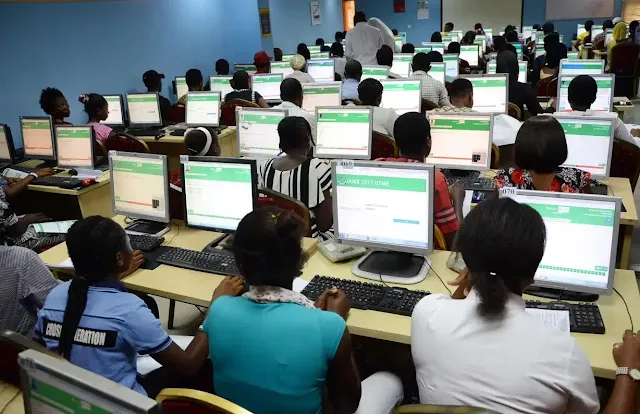On May 5, 2025, the Joint Admissions and Matriculation Board (JAMB) released the statistical analysis of the 2025 Unified Tertiary Matriculation Examination (UTME), revealing that 1,534,654 out of 1,955,069 candidates—approximately 77.87%—scored below 200 out of a possible 400 marks.
The results, announced in Abuja by JAMB’s Registrar, Professor Is-haq Oloyede, underscore persistent challenges in Nigeria’s secondary education system, with only 420,415 candidates (21.5%) achieving scores of 200 or higher. The examination, conducted across 774 Computer-Based Test (CBT) centers nationwide from April 25 to May 2, 2025, saw 1,904,189 candidates participate, while 80,810 were absent, and 64,624 results remain under investigation for issues like biometric verification failures and alleged malpractice.
The score distribution highlights a significant performance gap: only 12,414 candidates (0.63%) scored 300 or above, with 4,756 reaching 320 or higher. Another 73,441 candidates scored between 250 and 299, while 334,560 fell in the 200 to 249 range. The largest group, 983,187 candidates, scored between 160 and 199, and 488,197 scored between 140 and 159. JAMB noted that female candidates outnumbered males, with over 1 million girls registering, and enrollment of Persons Living with Disabilities increased by 36.2% compared to 2024. The board also addressed logistical issues, such as early exam start times (6:30 a.m. in some centers), which drew criticism from candidates and parents but were defended as necessary for security and efficiency.
Education stakeholders have described the results as a reflection of systemic issues, including inadequate teacher training, outdated curricula, and limited access to quality learning resources in rural areas. JAMB has urged schools, parents, and students to prioritize early preparation and reduce reliance on shortcuts like exam malpractice, which affected 78 candidates under investigation. The board also warned against a fraudulent website soliciting ₦15,700 for rescheduling missed exams, clarifying that no such service exists. As JAMB prepares to upload individual results, the 2025 UTME outcomes have reignited calls for comprehensive education reforms to address the high failure rate and ensure better outcomes for Nigeria’s youth.


